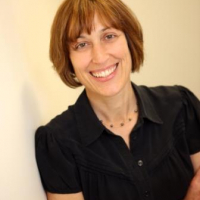
A new Cochrane review on school-based programs for the prevention of child sexual abuse has been the subject of national and international media attention in recent months. The review findings featured in global publications from The Guardian and Reuters, to Fox News and the Huffington Post among many others. Here in Australia, the review team leader and education researcher Kerryann Walsh published a thought-provoking piece in The Conversation setting out what the research tells us about current programs and exploring future challenges for researchers, educators and policymakers in this area.
‘We’ve been so pleased to have the opportunity to highlight and explain our review to the media directly and in such detail,’ Kerryann says. ‘We wanted to ensure our research wasn’t misrepresented or misunderstood in any way, particularly as this topic can be a very contentious one. As it turns out, we found a genuine sense of goodwill and responsibility among all the journalists we shared our research with, and this was reflected in the excellent coverage we received.’
Kerryann worked closely with the Cochrane Communications and External Affairs Team to prepare and present a carefully considered and comprehensive media campaign. In early April she joined Cochrane’s Editor in Chief David Tovey and Geraldine MacDonald, Coordinating Editor of the Cochrane Developmental, Psychosocial and Learning Problems Group, at a press conference in London. Together they fielded wide-ranging questions from The Guardian, The Independent, The Times, The Daily Telegraph, Reuters, the BBC, Sky News and regional media outlets.
‘The press conference gave us a chance to address common questions and concerns that arise whenever prevention programs are discussed,’ Kerryann says. ‘For instance, there are deeply held concerns that educational programs will introduce complex concepts that children are too young to understand or that might cause them to be anxious or wary of adults. There’s also a perception that programs might misplace the burden of responsibility for protection onto children. We take these concerns seriously and wanted to offer clarity around these issues.’
‘We explained that the programs we reviewed delivered information through developmentally appropriate concepts such as body safety rules, for example the idea that ‘my body belongs to me’. We also emphasised that the review findings don’t in any way imply that children are responsible for protecting themselves from sexual abuse, or that they can do so even with such knowledge and skills. I found journalists were interested in taking in this kind of detail and that they duly conveyed our findings in a positive and constructive way.’
In the Australian context, the review continues to find a broad audience beyond the bounds of the media. The findings offer an important evidence base to inform what has become a critical contemporary debate about how we can better protect children from sexual abuse. Since the Royal Commission into Institutional Responses to Child Sexual Abuse was set up in early 2013, the harrowing testimony of victims and the failure of individuals and institutions to protect them has continued to impact on the collective conscience. The clear consensus is that much more must be done to ensure children’s safety and that more consistent, effective and informed approaches are needed to do so.
‘The Royal Commission has a comprehensive research program under way looking at how programs, laws, policies and practices can more effectively protect children from sexual abuse,’ says Kerryann. ‘The Commissioners have a strong focus on evidence-based information and will draw on our review findings to inform their recommendations.’
‘While we still need to know a great deal more about prevention programs, such as their acceptability to parents and teachers, their effectiveness with children at greater risk and long-term outcomes, our review is certainly is a step in the right direction. We’re looking forward to building on this research to effect real change and continue this important conversation in the media, in schools and in our communities.’
* Image: Kerryann Walsh
